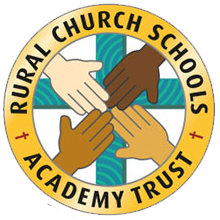A St Oswald's Geographer
Geography teaches an understanding of places and environments. Through their work in geography, children learn about their local area, and they compare their life in this area with that in other regions in the United Kingdom and in the rest of the world. They learn how to draw and interpret maps, and they develop the skills of research, investigation, analysis and problem-solving. Through their growing knowledge and understanding of human geography, children gain an appreciation of life in other cultures. Geography teaching also motivates children to find out about the physical world, and enables them to recognise the importance of sustainable development for the future of mankind.
The objectives of teaching geography in our school are:
- to enable children to gain knowledge and understanding of places in the world;
- to increase children’s knowledge of other cultures and, in so doing, teach a respect and understanding of what it means to be a positive citizen in a multi-cultural country;
- to allow children to learn graphic skills, including how to use, draw and interpret maps;
- to enable children to know and understand environmental problems
- to encourage in children a commitment to sustainable development, and an appreciation of what ‘global citizenship’ means;
- to develop in children a variety of other skills, including those of enquiry, problem-solving, ICT, investigation, and that of presenting their conclusions in the most appropriate way.
During Key Stage 1 pupils investigate their local area and a contrasting area in the United Kingdom or abroad, finding out about the environment in both areas and the people who live there. They also begin to learn about the wider world. They carry out geographical enquiry inside and outside the classroom. In doing this they ask geographical questions about people, places and environments, and use geographical skills and resources such as maps and photographs.
During Key Stage 2 pupils investigate a variety of people, places and environments at different scales in the United Kingdom and abroad, and start to make links between different places in the world. They find out how people affect the environment and how they are affected by it. They carry out geographical enquiry inside and outside the classroom. In doing this they ask geographical questions, and use geographical skills and resources such as maps, atlases, aerial photographs and ICT.
We teach key geographical skills.
Enquiry, Knowledge and Understanding of Places, Patterns, Processes, Environmental Change and Sustainable Development
In undertaking geographical enquiry, pupils should be taught to:
a. ask geographical questions
b. observe and record
c. express their own views about people, places and environments
d. communicate in different ways
In developing geographical skills, pupils should be taught to:
a. use geographical vocabulary
b. use fieldwork skills
c. use globes, maps and plans at a range of scales
d. use secondary sources of information
e. make maps and plans
In understanding place and pattern pupils should be taught to:
a. identify and describe what places are like
b. identify and describe where places are
c. recognise how places have become the way they are and how they are changing
d. recognise how places compare with other places
e. recognise how places are linked to other places in the world
In understanding the environment pupils should be taught to:
a. make observations about where things are located and about other features in the environment
b. recognise and explain patterns made by individual physical and human features in the environment
c. recognise some physical and human processes and explain how these can cause changes in places and environments.recognise changes in physical and human features
d. investigate changes which can be proved and sustained
During the key stage, pupils should be taught the knowledge, skills and understanding through the study of two localities:
a. the locality of the school
b. a locality either in the United Kingdom or overseas that has physical and/or human features that contrast with those in the locality of the school.
In their study of localities, pupils should:
a. study at a local scale
b. carry out fieldwork investigations outside the classroom.





